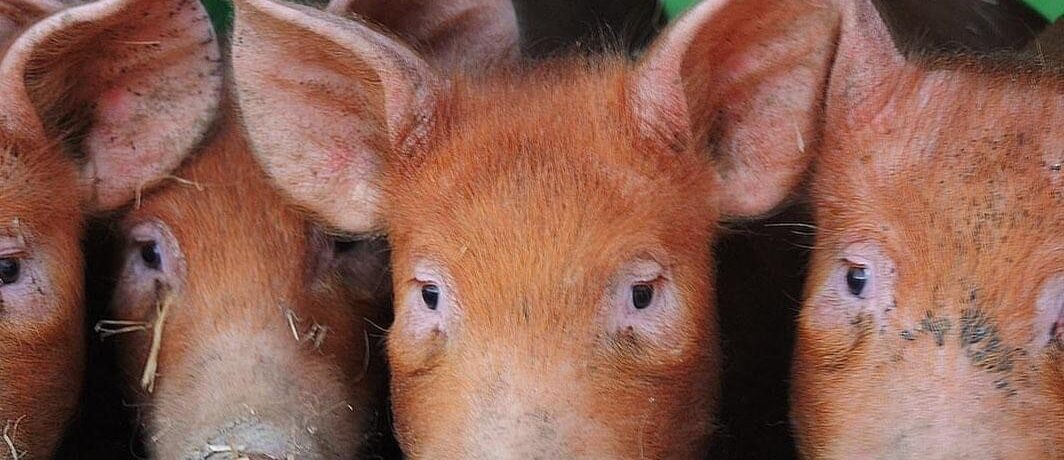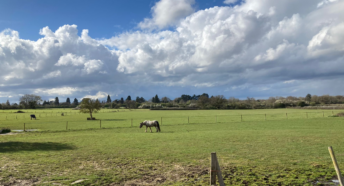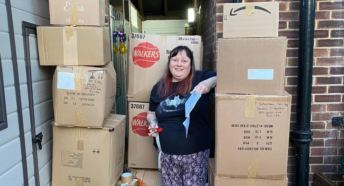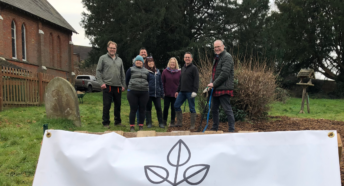Surrey Countryside Champions – Brightleigh Farm
Brightleigh Farm in Outwood, Surrey has brought back regenerative farming methods to produce beef, pork, and poultry that is nutritious and ethically raised. Working with nature rather than against it results in a nutrient-rich pasture and a healthy ecosystem for the farm.
We spoke to Penny at Brightleigh Farm to find out more about their methods of farming and the impact that they have.

1. Thank you for taking the time to talk to us. Please can you summarise who you are and what you do?
Brightleigh Farm is a small family-run farm, with husband & wife team, Nigel & Penny Franklin, daughters Ellie & Joely, and Penny’s mother, Anne. All the land is permanent pasture on heavy clay with a small amount of woodland. We produce Pasture-fed beef, rare breed pork, slow-grown, pasture-raised chicken & pastured eggs which we sell through our small farm shop and farmers markets at Ripley, Farnham & Earlswood.
2. Your farm uses regenerative farming methods. What does this mean?
Regenerative farming is a whole system approach to food production by nurturing the soil and working with nature to encourage a healthy environment for plants, livestock & wildlife. The main principles of regenerative farming are:
• Do not disturb the soil
• Keep the soil covered
• Keep living roots in the soil
• Encourage diversity of plants and wildlife
• Keep livestock on the land (or bring it back if pure arable)
We have seen a huge increase in the biodiversity on the farm since we have been farming this way. Huge numbers of butterflies, other flying insects, and birds are very noticeable plus the less obvious dung beetles and worms have colonised our small farm. We use no artificial inputs and the animals rarely need any medication because they are naturally healthy.
3. Brightleigh Farm is Pasture for Life certified, could you explain what that means and why it’s important?
Pasture For Life is a certification for ruminant animals (mainly cattle & sheep) which means that they eat a purely natural diet of grass & other pasture plants plus hay or silage (made from the same forage). It is unnatural for these animals to eat grain and other feeds which are often fed to them to speed up fattening or to produce more milk. They have evolved to eat forage and they are much healthier as a result – it can take a little longer, but it is definitely worth the wait for better quality and flavour.

4. Why is supporting local produce and farming so important?
Our food system is broken. Vast amounts of food are shipped around the country and the world to supply the demand for food all year round. By buying directly from your local farmer you are reconnecting with where your food comes from, cutting food miles, cutting out the middleman, and enjoying great tasting, seasonal food at its best. Meet the person who produces your food and find out how it is produced. By supporting us, we will continue to farm as we are and hopefully encourage more to farm in this way.
5. How can Surrey residents support local farming?
You can support us by visiting our farm shop or finding us at one of your local farmers’ markets.
6. What effect has climate change had on farming?
The weather certainly seems to be more challenging in recent years – we seem to suffer more droughts and have more flooding events. This can play havoc with the growing season – to be able to grow sufficient fodder for our animals, and to be able to harvest it (by grazing or cutting) when we need to, has been more difficult because of unpredictable weather patterns.
7. What makes the Surrey countryside so special?
Surrey is a beautiful county with a wide variety of landscapes – a huge number of trees, rolling hills, different soils, and host to a large variety of wildlife.
8. You and your team do amazing work. What’s your favourite Surrey greenspace to explore when you step away from the farm?
We love visiting Leith Hill or Reigate Heath.









